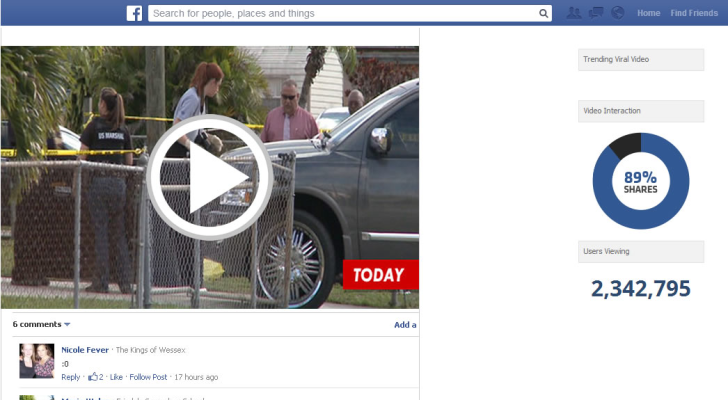- May 3, 2011
- 3,893

 - The image was taken from an incident in 2012
- The image was taken from an incident in 2012The news that Rick Ross could not perform at Detroit's Chene Park on Saturday night was quickly picked up by Facebook scammers who embellished it to attract more victims. The detail added was that the rapper was killed.
Indeed, it appears that there was a lot of commotion at the performance venue, with a human blockade denying entrance to the entertainer, who decided to cancel the show.
The cybercrooks’ scheme preys on the curiosity of the victim to find out what happened. They also make available an image with police standing at a crime scene, suggesting it is a video with the place where the rapper found his end.
The image is indeed related to Rick Ross, but it is from a 2012 incident, when a body was found in front of his house.
All this is a ploy of survey scammers seeking to direct traffic to specific addresses hosting all sorts of questionnaires; this way, the fraudsters earn affiliate cash and they’re hardly lifting a finger.
By promising access to the video, the fraudsters instruct the victim to share the link first, in order to spread the scam to other Facebook users. This way they ensure a constant income flow.
Even if the Facebook user complies to all the requests, they will never get to see the video, because it does not exist. It is just an image that looks like a frame in a video, specifically designed to stir curiosity.
Click after click, the victim finally reaches the intended destination of the scammer, the survey, which, obviously, needs to be completed in order to see the footage. This is themed according to the needs of the company requiring the data.
However, this type of scam is also used sometimes to distribute malware. The same strategy is used, only that the goal of the cybercriminal is not completing a survey or questionnaire but to deliver malware, oftentimes disguised as a video player or an update to a popular video player.
Harvesting the credentials for the Facebook account or other web services is also on the list of information coveted by the crooks.
A recent survey scam that ran on Facebook lured the users with a video that showed how a woman got killed in a fight. It may not have been the right type of lure, but considering how many users use Facebook, some of them may have taken the bait.
Source
